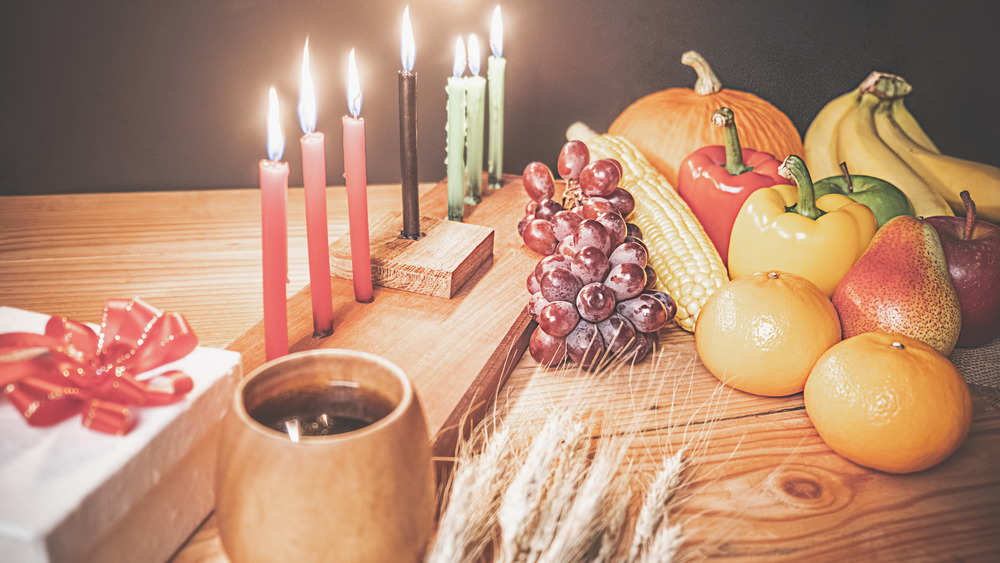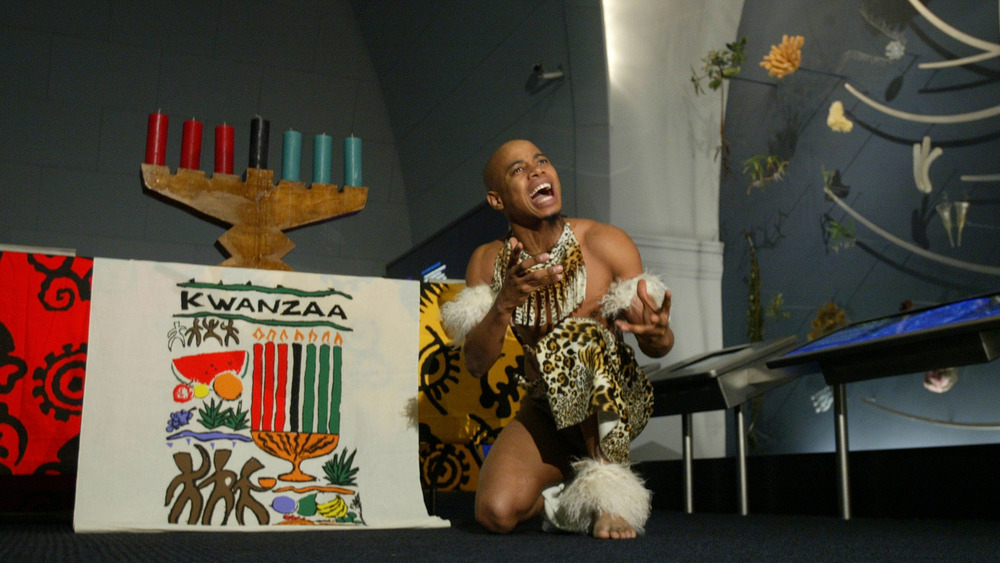How Do People Celebrate Kwanzaa?
As holidays go, Kwanzaa is relatively new ... and it isn't connected to a specific religion. This yearly celebration got its start in 1966 when Dr. Maulana Karenga, a professor and chairman of Black Studies at California University, wanted African Americans to build community after the Watts Rebellion, a six-day riot in August of 1965 that killed 34 people and caused $40 million of destruction, according to History.
Karenga started the cultural organization US, began researching African harvest holidays, and then combined several of them (including ones from the Ashanti and Zulus) to create Kwanzaa, a name that History reports comes from the phrase "matunda ya kwanza," or "first fruits" in Swahili. "First fruit festivals are celebrated in December and January in Southern Africa to coincide with the southern solstice," the Independent explained.
Every family has their own Kwanzaa traditions, but all embrace the time as a moment to appreciate family, community and culture. As the African American Cultural Center said, "It joins communitarian values and practices of Continental African and African American culture."
How to celebrate Kwanzaa
Often part of this celebration includes various songs, dances, African drumming, storytelling and, as the Food Network explains, of course, special foods like catfish, collards, mac and cheese, jerk chicken, gumbo and more.
The celebration lasts seven nights and on each one a candle is lit on the Kinara, a candle holder that represents ancestry. Three red candles are placed on the stand's left, and three green candles are on the right. A black candle is placed in the middle. Every night after the candle lighting, one of the Nguzo Saba – Swahili for seven principles that help African culture develop community — is examined and discussed. A big feast, or Karamu, caps the holiday. The seven letters in the name Kwanzaa represent the festival's seven principles.
The seven principles were formulated by Karenga and include: Unity (Umoja), Self-determination (Kujichagulia), Collective Work and Responsibility (Ujima), Cooperative Economics (Ujamaa), Purpose (Nia), Creativity (Kuumba) and Faith (Imani). On Imani, the last day of Kwanzaa, gifts are given. These are often books or heritage symbols, reported USA Today.
Kwanzaa starts on December 26 in the United States and lasts until January 1, 2021. Enjoy the holiday!

